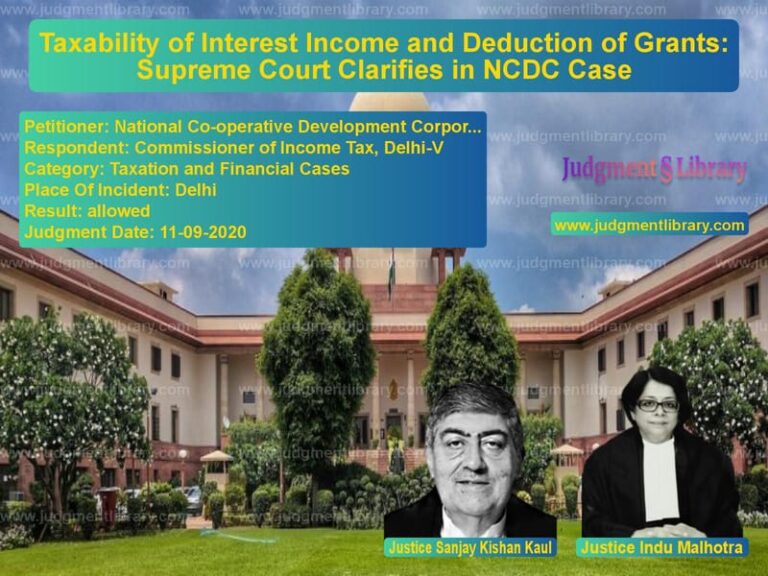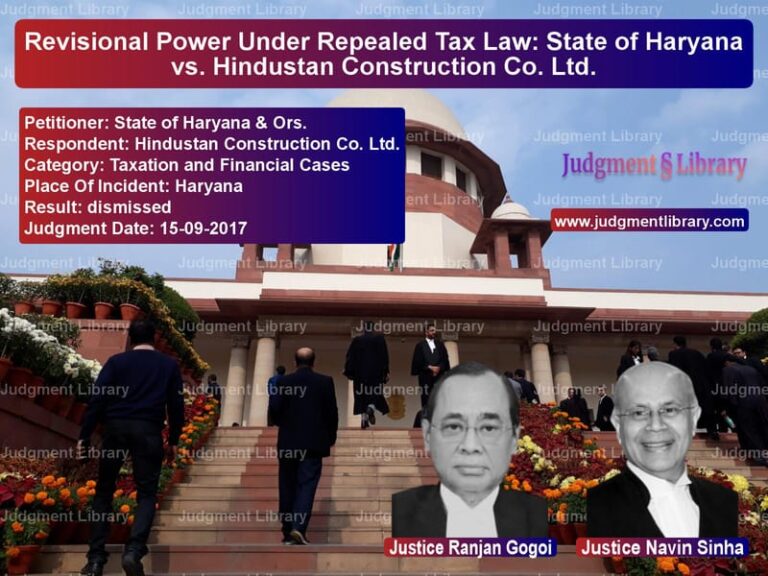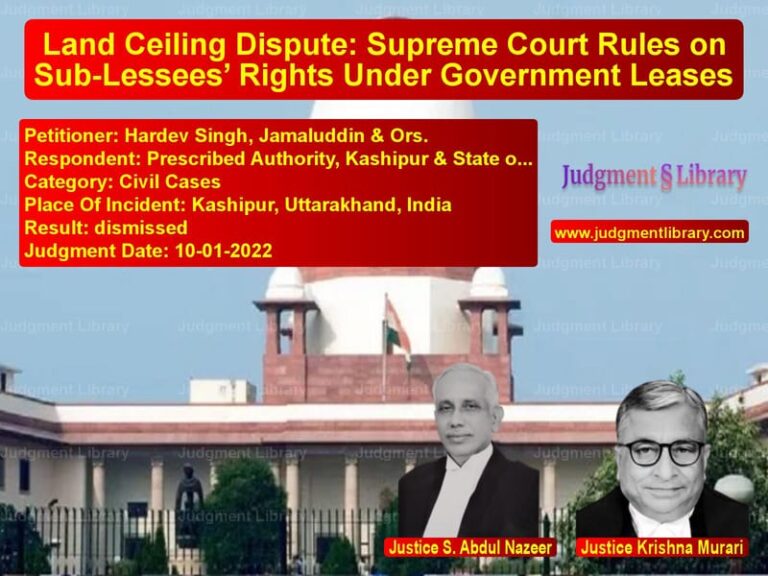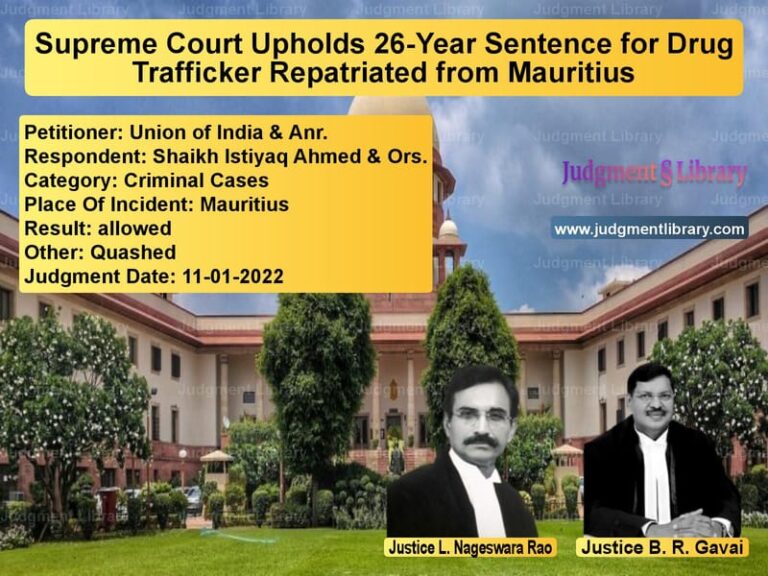Arbitration Dispute in Construction Contract: Supreme Court’s Verdict on Appointment of Arbitrator
The case of Aravali Power Company Pvt. Ltd. vs. M/s. Era Infra Engineering Ltd. is a significant judgment addressing the appointment of arbitrators in contractual disputes. This case, arising from a construction contract dispute, highlights key principles related to arbitration, neutrality of arbitrators, and the applicability of amendments to the Arbitration and Conciliation Act, 1996.
Background of the Case
Aravali Power Company Pvt. Ltd. (APCPL), the appellant, awarded a construction contract for the permanent township of the Indira Gandhi Super Thermal Power Project in Jhajjar, Haryana, to M/s. Era Infra Engineering Ltd., the respondent. The contract was signed on November 17, 2009, and contained arbitration provisions under Clause 56 of the General Conditions of Contract (GCC).
According to APCPL, the project’s scheduled completion date was May 19, 2011, but due to delays in progress, the company canceled certain remaining work through letters issued between 2014 and 2015. The respondent, Era Infra Engineering Ltd., disputed the cancellations and invoked arbitration on July 29, 2015, requesting an independent arbitrator, preferably a retired High Court judge.
Dispute Over Arbitrator Appointment
In response, APCPL appointed its Chief Executive Officer as the sole arbitrator on August 19, 2015, based on Clause 56 of the GCC, which permitted such an appointment. The respondent objected to the appointment, citing concerns over neutrality and bias, as the arbitrator was an employee of the appellant company.
The respondent raised objections only on January 12, 2016, despite initially participating in arbitration proceedings without protest. The objection was rejected by the arbitrator on January 22, 2016, on the ground that the respondent had already engaged in proceedings without raising any concerns. Consequently, the respondent approached the Delhi High Court, seeking termination of the arbitrator’s mandate under Section 14 of the Arbitration and Conciliation Act, 1996.
Arguments of the Petitioner (Aravali Power Company Pvt. Ltd.)
- The appointment of the CEO as the arbitrator was valid under Clause 56 of the GCC.
- The respondent failed to raise objections within the prescribed time, thus waiving its right to challenge.
- Since the arbitration invocation was before the 2015 Amendment to the Arbitration Act came into force, the new neutrality provisions did not apply.
- The High Court overstepped its jurisdiction by interfering in a matter where the respondent had already participated in arbitration proceedings.
Arguments of the Respondent (Era Infra Engineering Ltd.)
- The appointment of the CEO as arbitrator was against the principle that ‘no one can be a judge in their own cause.’
- The arbitrator, as an employee of the appellant, had a conflict of interest, which raised justifiable doubts about his neutrality.
- The company’s highest management made the disputed cancellation decisions, making it unfair for an employee of the same company to adjudicate.
- The 2015 amendment emphasizing impartiality and independence of arbitrators should be applied to ensure fair proceedings.
Delhi High Court’s Ruling
The Delhi High Court ruled in favor of the respondent and set aside the appointment of the arbitrator. The Court directed APCPL to propose three independent arbitrators from different departments, from which the respondent could choose one. If APCPL failed to do so, the respondent would have the right to seek an appointment from the Delhi International Arbitration Centre.
The High Court observed:
“It is a well-established principle that justice must not only be done but also be seen to be done. The CEO of a company serving as an arbitrator in disputes involving his own company raises reasonable concerns about neutrality.”
Supreme Court’s Observations
APCPL challenged the High Court’s decision before the Supreme Court. The Supreme Court made the following observations:
- The arbitration invocation was made before the 2015 Amendment came into force, meaning the unamended provisions of the Arbitration Act applied.
- Before the amendment, the appointment of an arbitrator from within the company was not automatically invalid.
- In Indian Oil Corporation Ltd. v. Raja Transport Pvt. Ltd., the Supreme Court had previously ruled that employee-arbitrators were valid unless there was clear evidence of bias.
- The respondent participated in the arbitration proceedings without immediate objection and only raised concerns months later.
- The High Court’s decision was influenced by the new amendment rather than the legal framework in place at the time of arbitration initiation.
The Court emphasized:
“The fact that the named arbitrator is an employee of one of the parties is not ipso facto a ground to raise a presumption of bias or partiality or lack of independence on his part.”
Final Verdict
The Supreme Court overruled the High Court’s decision and reinstated the appointment of the CEO as arbitrator, stating:
“Since there is nothing on record to raise justifiable doubts about the independence or impartiality of the named arbitrator, the appointment could not in any way be termed as illegal or unenforceable.”
The Supreme Court concluded:
- The arbitrator’s appointment was lawful under the pre-amendment legal framework.
- The High Court overstepped its jurisdiction by enforcing the post-amendment neutrality requirement on a pre-amendment arbitration.
- The arbitration would continue under the originally appointed arbitrator.
The appeal by APCPL was allowed, and the respondent’s challenge was dismissed.
Conclusion
This judgment reinforces the principle that changes in arbitration law cannot be retroactively applied to alter existing agreements. It also highlights that neutrality concerns must be assessed based on the prevailing law at the time of arbitration initiation. The ruling clarifies that employee-arbitrators were valid under the pre-2015 legal framework unless specific bias was demonstrated. This case sets a precedent for arbitration appointments in corporate and contractual disputes.
Don’t miss out on the full details! Download the complete judgment in PDF format below and gain valuable insights instantly!
Download Judgment: Aravali Power Compan vs Ms. Era Infra Engin Supreme Court of India Judgment Dated 12-09-2017.pdf
Direct Downlaod Judgment: Direct downlaod this Judgment
See all petitions in Arbitration Act
See all petitions in Dispute Resolution Mechanisms
See all petitions in Institutional Arbitration
See all petitions in Judgment by Uday Umesh Lalit
See all petitions in allowed
See all petitions in supreme court of India judgments September 2017
See all petitions in 2017 judgments
See all posts in Arbitration and Alternate Dispute Resolution Category
See all allowed petitions in Arbitration and Alternate Dispute Resolution Category
See all Dismissed petitions in Arbitration and Alternate Dispute Resolution Category
See all partially allowed petitions in Arbitration and Alternate Dispute Resolution Category







